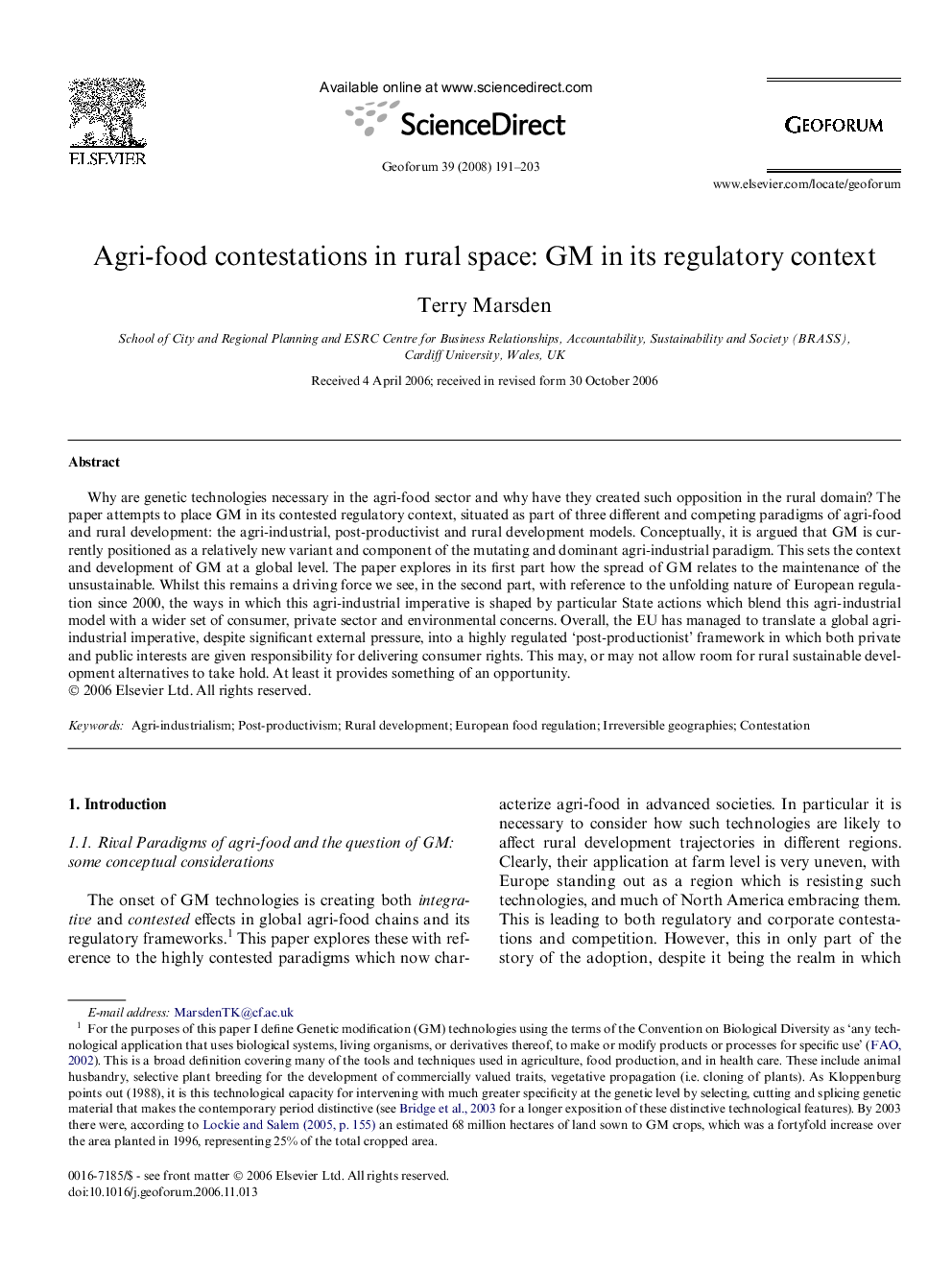| Article ID | Journal | Published Year | Pages | File Type |
|---|---|---|---|---|
| 5074971 | Geoforum | 2008 | 13 Pages |
Why are genetic technologies necessary in the agri-food sector and why have they created such opposition in the rural domain? The paper attempts to place GM in its contested regulatory context, situated as part of three different and competing paradigms of agri-food and rural development: the agri-industrial, post-productivist and rural development models. Conceptually, it is argued that GM is currently positioned as a relatively new variant and component of the mutating and dominant agri-industrial paradigm. This sets the context and development of GM at a global level. The paper explores in its first part how the spread of GM relates to the maintenance of the unsustainable. Whilst this remains a driving force we see, in the second part, with reference to the unfolding nature of European regulation since 2000, the ways in which this agri-industrial imperative is shaped by particular State actions which blend this agri-industrial model with a wider set of consumer, private sector and environmental concerns. Overall, the EU has managed to translate a global agri-industrial imperative, despite significant external pressure, into a highly regulated 'post-productionist' framework in which both private and public interests are given responsibility for delivering consumer rights. This may, or may not allow room for rural sustainable development alternatives to take hold. At least it provides something of an opportunity.
